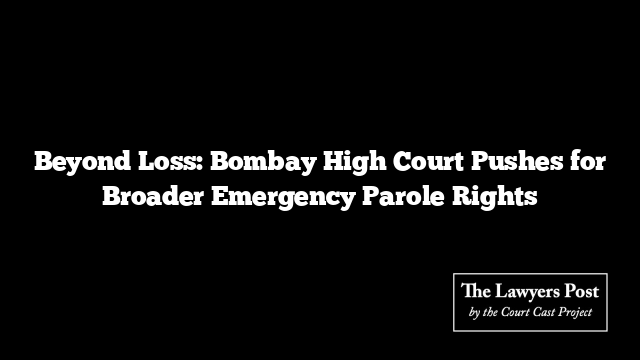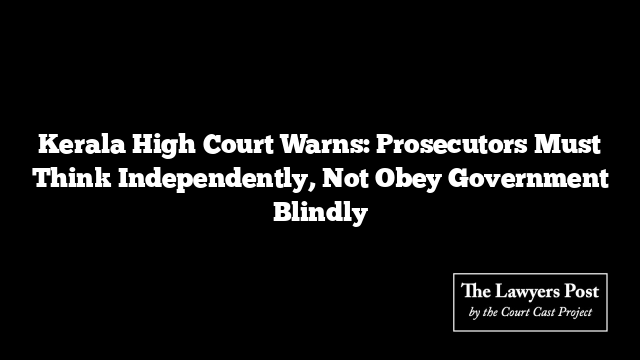The Bombay High Court recently challenged a rule that restricted emergency parole for prisoners solely to cases involving the death of a close relative, emphasizing that life’s unpredictable crises aren’t confined to bereavement. Addressing a plea by Balaji Puyad, who sought parole when his wife became critically ill, the court argued that various unforeseen circumstances, such as severe family illnesses, childbirth, or natural disasters, also deserve consideration.
A Division Bench comprising Justices Bharati Dangre and Manjusha Deshpande questioned the fairness of a regulation that demands prisoners serve at least 1.5 years before qualifying for emergency parole, aside from the exceptional case of a relative’s passing. The judges called this constraint “manifestly arbitrary,” highlighting that emergencies by nature defy such rigid timelines.
Puyad’s parole application, filed in September 2024, had been rejected on the grounds that he had not completed the mandatory period since returning from furlough in April. Prison officials cited a rule stemming from a 2022 amendment to the Maharashtra Prisons Rules, which reinforced this time-based limitation. Yet the court expressed astonishment at the persistence of this proviso, despite previous legal findings deeming similar restrictions unreasonable.
The High Court directed Nashik Road Central Prison authorities to reconsider Puyad’s plea within a week, urging them to disregard the time requirement and evaluate the situation on humanitarian grounds. The court also hinted at possibly invalidating the rule in the future, though it confined itself to the current case for now.
In its ruling, the court underscored the unpredictability of emergencies, stressing that waiting for years to address crises like a parent’s sudden illness or a natural disaster undermines the purpose of emergency parole. The decision marks a pivotal moment in reconsidering how compassion is administered within the penal system, advocating for flexibility in the face of life’s unplanned upheavals.





